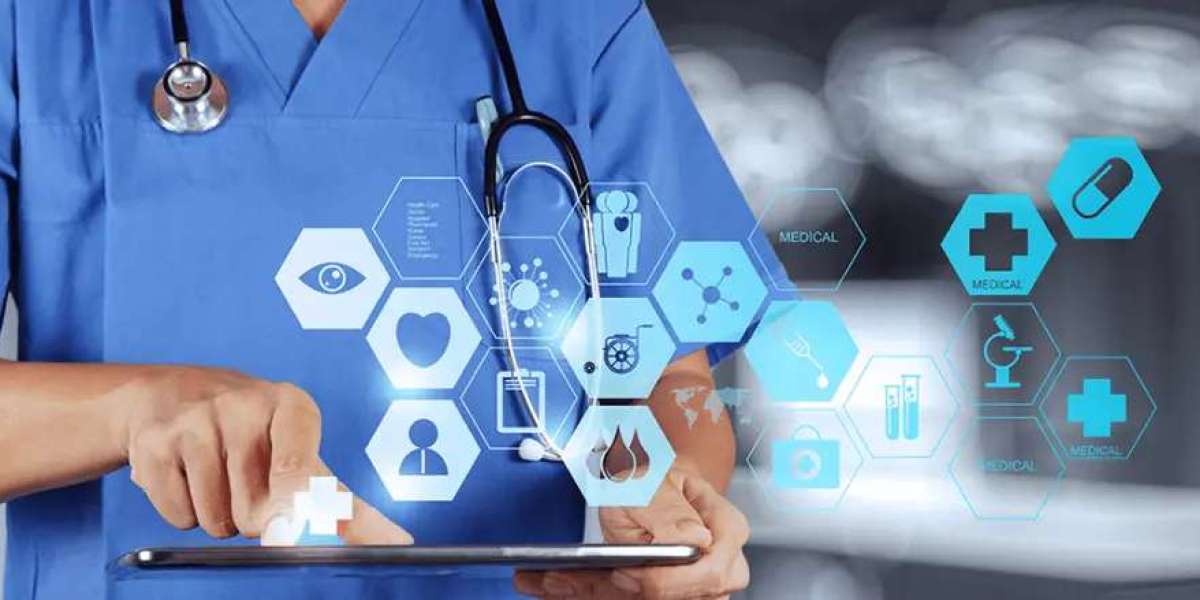Whether it’s electronic health records (EHRs) or telemedicine platforms, software solutions are transforming how care is delivered. Patients now expect faster diagnoses, seamless communication with healthcare providers, and real-time access to their medical records.
But how exactly does software development in healthcare make all this possible? This blog will explore how customized healthcare solutions not only enhance patient care but also streamline operations for healthcare providers.
Why Healthcare Software Development is Critical for Modern Patient Care
The adoption of healthcare software development has changed the way medical professionals diagnose, treat, and monitor patients. Traditional systems often lead to errors, slow down processes, and lack integration. With modern software, healthcare providers can streamline their workflows and minimize human errors.
For example, EHRs ensure that medical history, lab results, and prescriptions are available in one place, reducing the need for patients to repeat information. Mobile apps and wearable devices also allow for continuous patient monitoring, making it easier to catch early warning signs of chronic diseases. This ability to integrate technology directly into patient care improves not just outcomes but also patient satisfaction.
Streamlining Communication Between Healthcare Providers and Patients
Effective communication between patients and doctors is crucial for accurate diagnoses and treatment plans. Software development in the healthcare industry has significantly enhanced this aspect. Features like patient portals, instant messaging, and telemedicine apps now allow patients to communicate with doctors without leaving their homes.
Patient Portals: Imagine you’re a patient needing an urgent prescription refill. Instead of waiting on hold, you can simply log into your healthcare provider’s portal, request the prescription, and have it sent to your pharmacy. This saves both the patient's and doctor's time.
Telemedicine: Virtual appointments are more convenient than ever, reducing hospital visits for minor consultations. A mother with a sick child can speak to a pediatrician without leaving home—something unheard of before healthcare software became mainstream.
Improved Diagnostic Accuracy with Advanced Software Tools
Software tools powered by AI and machine learning are revolutionizing diagnostics. These tools analyze patient data to detect abnormalities that may go unnoticed by human eyes, improving diagnostic accuracy and allowing for earlier intervention. For instance, AI algorithms can review X-rays and CT scans, flagging potential issues like tumors or fractures.
This doesn’t mean doctors are being replaced. Rather, software development healthcare industry solutions are assisting healthcare providers in making faster, more informed decisions.
For instance, A patient comes in with chest pain. AI-driven diagnostic software reviews the patient's history, current symptoms, and lab results in seconds, suggesting a likely diagnosis and treatment plan. This speeds up care, making critical interventions timely and potentially life-saving.
Data Security and Compliance: Keeping Patient Information Safe
With the increase in digital health records, healthcare software development has also focused on data security. Patient privacy is paramount, and software solutions need to adhere to strict regulations like HIPAA (Health Insurance Portability and Accountability Act).
Robust security measures like encryption and two-factor authentication are implemented to ensure sensitive data is protected. This focus on compliance not only safeguards patient information but also builds trust between healthcare providers and their patients.
Personalized Treatment Plans Using Data Analytics
Personalization is a growing trend in healthcare, and it’s becoming easier with advanced software tools. Healthcare software development allows for more customized treatment plans tailored to individual patients’ needs. Data from wearables, patient history, and lifestyle habits can now be integrated into a central system, helping doctors create more effective care strategies.
Let's say that a diabetic patient wearing a smart glucose monitor has their readings automatically synced with their doctor’s software. The doctor reviews the data and adjusts the treatment plan in real time, improving the patient’s health outcomes without needing frequent office visits.
Faster Access to Patient Data with Mobile Apps
Mobile apps are rapidly becoming a cornerstone of patient care, providing instant access to health records, appointment scheduling, and test results. As more people turn to smartphones for their daily tasks, it’s only natural that mobile health apps will follow. For example, a mobile app development company in Dallas could design an intuitive app that allows patients to track their symptoms, receive reminders for medication, and even consult with healthcare professionals.
These apps also allow healthcare providers to access patient data on the go, making it easier to provide timely interventions. Imagine a doctor seeing your lab results in real-time and adjusting your treatment before a scheduled visit. That’s the power of mobile health.
Enhancing Patient Monitoring with IoT Devices
Wearables and other IoT (Internet of Things) devices are reshaping patient care, especially for those with chronic conditions like heart disease or diabetes. Software development in healthcare integrates these devices with central monitoring systems, allowing healthcare professionals to continuously track vital signs, activity levels, and other health metrics.
This constant flow of real-time data helps catch any abnormal readings early, making preventive care more accessible. For instance, if a heart patient’s wearable detects unusual rhythms, it can alert their doctor immediately. The doctor can then take preemptive action, potentially preventing a serious event like a heart attack.
Efficient Hospital Management through Automation
Healthcare software doesn’t just improve patient outcomes—it also streamlines hospital management. From scheduling surgeries to managing inventory, software solutions automate time-consuming administrative tasks. This ensures that hospital staff can focus more on patient care rather than paperwork. Hospitals that adopt these solutions see improvements in efficiency, reduced costs, and better overall patient satisfaction.
Imagine a hospital where nurses no longer spend hours manually updating patient charts. Instead, automated systems handle routine tasks, leaving healthcare professionals with more time to interact with patients.
The Future of Patient Care Through Software
Healthcare software development is no longer a luxury; it’s a necessity. With personalized care, improved diagnostics, and streamlined communication, software solutions are driving better health outcomes. From mobile apps to AI-driven diagnostics, the future of healthcare is digital, and patients stand to benefit greatly from these advancements.
As the healthcare industry continues to evolve, partnering with forward-thinking developers will ensure that both providers and patients are equipped to thrive in this tech-driven world. It’s clear that software development healthcare industry solutions are not just enhancing patient care but revolutionizing it for the better.







